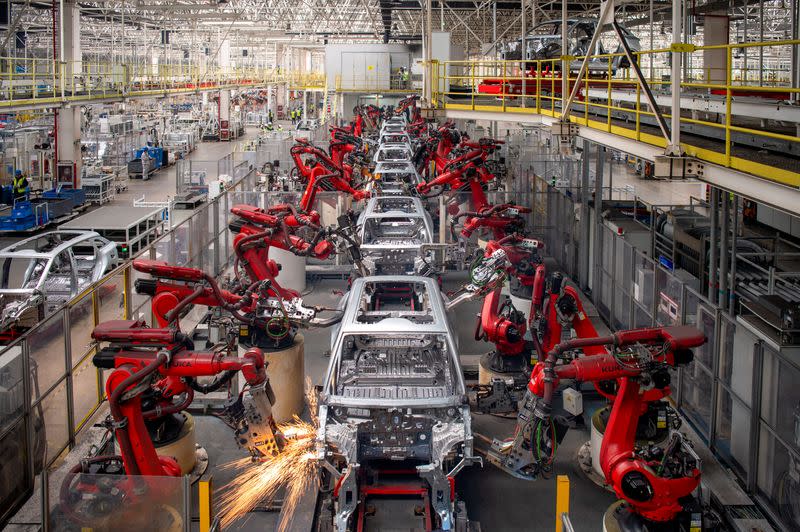Volkswagen is in talks with Zhejiang Leapmotor Technology, the Chinese electric vehicle (EV) startup, about a possible of tie-up with VW’s Jetta brand, a Chinese state news outlet said on Wednesday.
A joint venture between VW and state-owned Chinese automaker FAW Group could “buy” a platform of EV technologies from Leapmotor, according to the state-backed financial news website Cailianshe.
Leapmotor and VW China declined to comment. Reuters was unable to independently confirm the reported discussions between the companies.
ALSO SEE: VinFast Set For August US Listing Through $23 Billion Merger
Leapmotor unveiled a new platform on Monday that it developed in-house for making vehicles, which its chief executive said it wanted to license to other automakers.
CEO Zhu Jiangming told reporters that Leapmotor was in advanced talks with two foreign companies about such a partnership, including a new player in the electric vehicle segment, which could produce Leapmotor-developed models in overseas markets.
Leapmotor’s shares in Hong Kong jumped as much as 5% in afternoon trading after the Cailianshe report, reversing earlier losses.
Volkswagen and Xpeng announced last week a partnership to jointly develop EVs on Xpeng’s ‘Edward’ platform on which the Chinese startup’s G9 model was built.
India probing BYD over ‘unpaid taxes’
Meanwhile, in separate car industry news, Chinese automaker BYD is under an ongoing investigation by the Directorate of Revenue Intelligence (DRI) over allegations of underpaid taxes on imported parts used in its assembled cars sold in the country.
The DRI claims that BYD, China’s largest electric vehicle (EV) maker, underpaid taxes amounting to $9 million.
While BYD has deposited this sum following the preliminary findings, the investigation remains open, and additional tax charges and penalties could be imposed. BYD and the Indian authorities have not provided any official response.
BYD’s expansion plans in India have faced challenges amid strained relations between New Delhi and Beijing.
The Chinese automaker is currently under heightened scrutiny from Indian authorities due to a $1-billion proposal to build cars locally, in line with India’s stricter regulations on foreign investments from neighboring countries, including China.
BYD has told its Indian joint venture partner that it has dropped its investment plans, as it faces scrutiny from authorities.
Chinese firms face tax scrutiny
In recent years, Chinese companies in India have faced increased scrutiny following border clashes between the two nations in 2020. Smartphone maker Xiaomi Corp has also encountered allegations of illegal remittances to foreign entities in the name of royalties.
India imposes different tax rates on fully built electric cars and car parts imported for local assembly into EVs. While fully built electric cars are subject to 70% or 100% tax based on the vehicle’s value, car parts can be levied at 15% or 35% if they are imported without being mounted on a vehicle chassis.
The sources reveal that BYD has not met the necessary conditions to benefit from the lower tax rates, making the automaker liable to pay either 70% or 100% based on the car’s value.
The specific time period of the alleged tax violation and the number of cars affected have not been disclosed. BYD, which has invested over $200 million in India, offers the Atto 3 electric SUV and the e6 EV to corporate fleets and plans to introduce its Seal electric sedan later this year.
As of 2022, the company has sold approximately 1,960 cars in India, according to government registration data.
- Reporting by Reuters with additional editing by Jim Pollard
ALSO SEE:
Volkswagen Buys $700 Million Xpeng Stake to Lift China EV Share
India Turns Down BYD’s $1-Billion EV, Battery Plant Proposal
China’s CATL Posts Record Profit Even As Slowing Demand Bites
VW Vows to Stay Ahead as China EV Revolution Gathers Pace
Volkswagen Says ‘Don’t Want to Give Up’ China EV Market
























